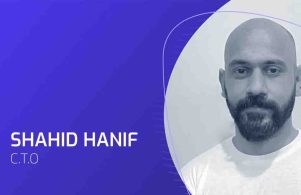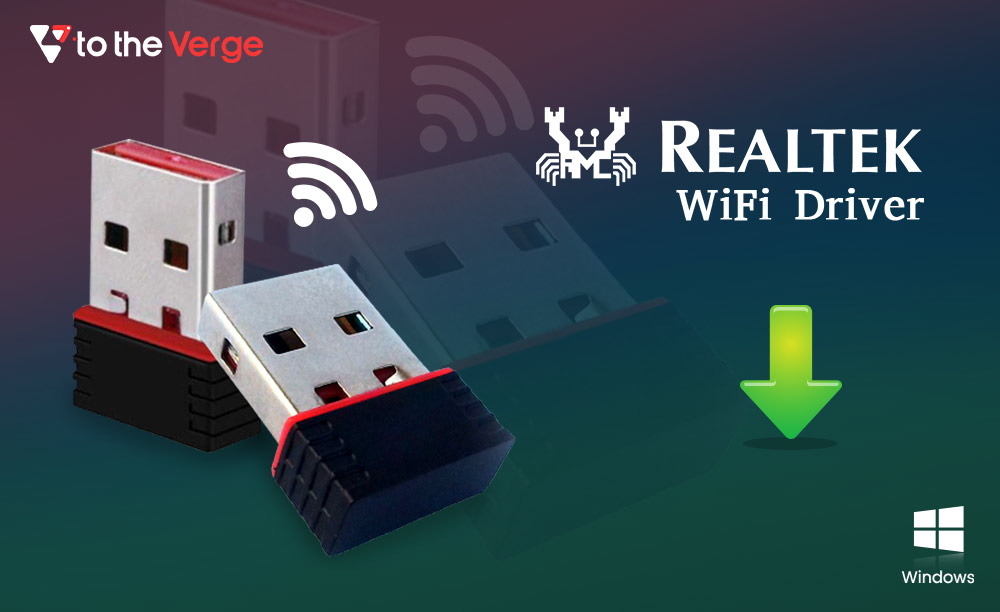The Chief Strategist of Sultan Interactive Group, Oz Sultan, shares his valuable knowledge regarding the several opportunities and security challenges the world might face with the advent of the Metaverse era.
‘To The Verge’ had an illuminating conversation with Oz Sultan, the Chief Strategist of Sultan Interactive Group, a blockchain and metaverse consultancy group. He expressed his opinions and views regarding various issues like data privacy, security, technology in terrorism. And suggested use-cases of the advancing tech. Stay tuned till the end to learn more from the conversation!
About Sultan Interactive Group and Oz Sultan
Oz explained Sultan Interactive Group is a blockchain and metaverse, consultancy group. Since its inception in 2010, the group has continued to entrench inside the blockchain. The aim is to use this technology and help people with financial empowerment.
Other than this, Oz shared other projects and organizations that he is a part of like the Council Exchange Board of Trade, Metaverse Oversight Council, Creative Creations, Quantum Economics, and XRSI (Extended Reality Safety Initiative).
Having fought Stage Three Cancer, and understanding how financially grueling the disease can be, Oz was inspired to come up with an initiative for the greater good. He is part of the advisory board for ‘The Helping DAO’. For this purpose, a new NFT collection, SOLS by solshamans.com will begin next month that will be based on the polygon, formerly known as Matic blockchain. Oz explained there are going to be 7,777 collectible shamans. The fund that would be raised from the sale of these collectibles would be put in as an endowment to invest in Decentralized Finance technology protocols over the next few years. He further elaborated, every year the interest received on the investment would be handed out to the people who might need it during tough times.
He said, “There’s a need opportunity to tie commerce and philanthropy together in ways that will radically alter the way we look at capitalism. It is also altering the way we incorporate social giving and other such initiatives into our daily lives.”
Safety and Security in Web 3.0
Oz admitted that safety and security are two areas that would require a considerable amount of effort on part of companies that are jumping into Web 3.0. He said one of the biggest problems of the time is that a lot of people who began with creating social and blockchain platforms have jumped into gaming which is a completely different environment. This will create a lot of chaos regarding the platforms and their purpose.
- The NFTs are becoming a vector for technology and collectibles like trading art, and comic books in high art. NFTs like Crypto Punks (CryptoPunks – Wikipedia) are sold for millions of dollars as they’re limited edition. Venture Capitalists bid large amounts of money on these. And people are willing to pay anywhere between a million to a billion dollars for these collectibles. Oz expressed the fact that cloning of the items is possible, and there is no way to uniquely identify an original piece is worrisome and raises questions around the concept. Adding to this he said, unlike OpenSea, which is one of the largest NFT marketplaces on the internet, other platforms are not well managed and equipped to keep documented, verified, and authorized collectibles.
“The small third-party platform as a result of their inadequate security measures would have to be shut down, halt operations, or limit access. This is the starting point of it, and in the long-term, those platforms would either have to start addressing the amount of fraud in a very serious way, or they’re going to start facing regulations coming down upon them.”
He shared the recent incident with Cent, an ad-free creator network, the company that auctioned Jack Dorsey’s first tweet as an NFT for $2.9 million in 2021. How it had to halt its transactions due to rampant sales of clones and plagiarized collectibles. (Read the article: https://www.engadget.com/cents-suspends-nft-trading-232134673.html)
“If the NFT and collectibles aspect of Web 3.0 continues to have as much prevalent fraud as it does, we’re going to see governments cracking down. And as they’d do that, it will impact the prices of these things, and that could completely flatline collections.”
- The next thing he talked about was the privacy concerns in using the XR technology. Oz emphasized, “It is important to understand that data rights are human rights.”
He explained “When a VR headset is being used and the user experiences the immersion, a variety of data gets collected. This includes location data, picture data, personal data, motion capture, data on the scale of the room, video of what surrounds the user, what they are doing, the movement of their eyeballs, how they’re interacting with people, their voice, and human responses. All of these are very personal, and therefore reasonably terrifying.”
- Lastly, he mentioned a very critical issue to safety and security at the national level. Oz shared how terrorist organizations use technology to radicalize young minds, and how they keep up with the changing trends. He explained, “If we were to go back 20-30 years from now, it would take months for someone to radicalize somebody and get them into their organization. When the internet came those months turned to days. With the advent of social media, it would take a few days. But now, with immersive technologies and access to video games, radicalization can take place within a day or two since it gets a huge emotional response of the users.” (Read the research article: https://cyberdefensereview.army.mil/P )
Oz added, “It’s a lot of looking at these things from the point of how these are being disseminated, how are the conversations happening, how are people being engaged. And those are the big problems and issues that we have inside of this landscape. Because everything big in social becomes bigger when taken into the Web 3.0.”
The Cultural and Social Shift
As the world moves towards Web 3.0, Oz believes it is important to understand that there is a radical shift not just in terms of how people are interacting with each other, but also the impact that it will have on different societies and their cultures. He further explained, people who were born pre-internet and grew up through the internet era, gradually adapted to the new ways of connection. When social media came in, they learned new ways to interact with other people. And now, that has been taken to the next level with immersive video content and applications.
Some of the Gen Z (1997-2012) and all of the Gen Alpha (2013-2025) will grow up to be in a fully immersive way of interaction and communication. This, Oz says, will create a huge generational gap for a lot of people who are in their 40s and older, who didn’t stay current with the advancing technology.
He further elaborated, having a generation that grew up only with technology and doesn’t know about a time without it, will lead to a stark difference between understanding among the people. The world would witness and adapt to fast-moving cultures like the meme culture.
“There’s a lot to be learned and acknowledged. For countries with diverse cultures, different languages, and other social aspects keeping up with the technological changes is going to be a lot harder, more complicated, culturally different, contextually different, and linguistically different.”
Views on Emerging Trend in Crypto and Blockchain
Oz explained that blockchain technology is evolving continuously. New decentralized finance technologies are emerging with efficient mechanisms to stabilize currencies. For instance, burnt cycles are being built into the system to keep the value of crypto steady.
Under new decentralized financial strategies, crypto-currencies are pegged to a more stable currency and can be regained in the same currency or other additional ones. Another one is yield farming, where cryptocurrency coins or tokens can be lent to get rewards in the form of transaction fees or interest. Recently, one more trend has been recognized, known as Crypto Airdrops, where free tokens are sent to the members of the crypto community to encourage adoption.
Another enhancement in the area is the use of DNS services where instead of having to memorize or copy-paste a long wallet stream, the user can directly do the transactions with the help of name services like BNS (Blockstack Naming Service), ENS (Ethereum Name Service), and more.
Oz summarized his views by presenting the following points:
“I see this whole thing in 3 ways —
- We have the traditional blockchain technology that is beginning to enter a variety of industries to provide provenance. The technology will improve the traceability of the production, transportation, and sale of goods that are essential to a country.
- Then there is the crossover of Blockchain and Web 2.0 technologies. For instance, the concept of NFTs and collectibles are technically Web 2.0 technologies.
- Next, we see Web 3.0 technologies like VR, AR, XR, and a variety of other things. These will add layers of information and reality to the system. And therefore, the need to have a reasonable amount of provenance and validity inside the trade systems will increase.”
Oz quoted Robert Scoble’s statement, “By 2026, globally, we might be looking at more than a billion people that could be crafting and selling digital goods.” He added, “The time that it is starting is right now.”
Dealing with Big Data for Marketers and Businesses
Big Data, is a field that encompasses ways to analyze, and systematically extract information from huge complex data sets which cannot be done with traditional data-processing application software (Big Data – Google) Oz thinks big data is nowhere near maturity.
“We’re still dealing with marketing companies that run projects, and have enormous amounts of data with them but don’t know what to do with it. So, they either throw it away or put it on a blade server. When the data is stopped being paid for, it disappears.”
He further explained that there are several complicated issues with big data as no real standards are guiding the utilization of big data, and no level of technology people can be brought in. Adding to that are the ongoing inconsistency challenges in the evolution of the marketing landscape.
Oz said, “First of all the ad units we’re used to are going to change. Traditional billboard and banner advertisements won’t have much impact in VR since they’re not interactive. Then there’s a need to understand social media advertising, and how the space is changing. Other than this, advertising in XR and VR space needs to be understood as it begins to develop.”
In his view, a ven diagram can be drawn to sum it up, where there’ll be the following three things — the ICANN standards (the traditional web standards), the social media standards, and Web 3 standards. “The Web 3.0 is going to be all over the space. Also, consider the branded pieces that are advertising as well. Addidas just did a crossover with BAYC (Bored Ape Yacht Club), but they aren’t catching up as they could have. This is because these brands are jumping in, but they are not understanding the landscape. So in a way, it is 1996 all over again. Companies are spending money trying to identify what the ad units are, where they should be advertising, and it’s a whole new thing all over again.”
Oz would suggest the best way to deal with big data and optimize it for business and marketing purposes would be to create user profiles.
“Ideally, what people should do is to get all the big data they have access to, and create what I call user profiles that can be pretty rich. They can have many attributes to them. They can be demographically segmented, socio-graphically segmented. This is going to largely affect all the marketing decisions about pricing, packaging, advertising, etc. A lot of things need to be considered like data profiling, data segmentation, and the engagement of different areas. Are they engaging on Web 2 or Web 3? Because there is a difference in terms of who has access to what kind of technology.”
Plans for the Future
Oz with his initiative the ‘Sultan Interactive Group’ looks forward to providing blockchain and metaverse services to companies and businesses that require consultancy in adapting to the changes in technologies.
He suggested, “Companies need to consider the change in how the data needs to be addressed, how customers need to be engaged, and how they need to pay. As we’re focusing primarily on blockchain and metaverse, all these different pieces become the major topic to be discussed inside of these conversations.”
Conclusion
Our conversation with Oz Sultan introduced us the several aspects linked with the metaverse and blockchain technology. It is important to acknowledge how the rapid advancements will impact our culture and society, security and safety, and what can be done to bridge the gaps. Lastly, he explained how big data can be efficiently utilized, and how he’ll continue to help organizations with his consultancy services.
Oz Sultan is the Chief Strategist in Sultan Interactive Group and an esteemed board member of several organizations like XR Safety Initiative (XRSI), Homeland Security Foundation of America (HSFA), and GSD Venture Studios. He is also passionate about research and is a Senior Research Fellow at the Council Exchange Board of Trade, and a National Senior Fellow at the National Minority Technology Council.
Khatija is a Senior Editor at To The Verge. Her interest in tech started when she came across AI, IoT, and XR. Always keen to learn the latest tech peripherals, Khatija loves to interact with tech industry experts and dig for information relating to emerging technologies. When not nerding over technology, she can be found on the couch binging mystery or sci-fi movies.







![How to Update and Reinstall Keyboard Drivers on Windows 10/11 [A Guide]](https://wpcontent.totheverge.com/totheverge/wp-content/uploads/2023/06/05062841/How-to-Update-and-Re-install-Keyyboard-Drivers-on-Windows-10.jpg)
